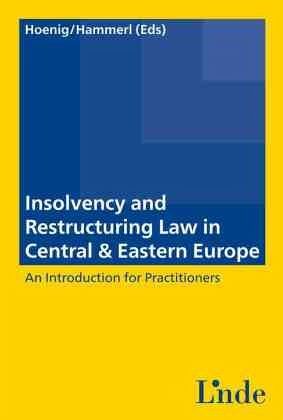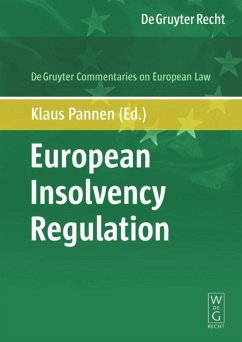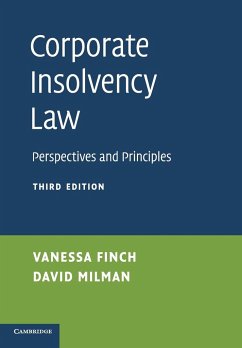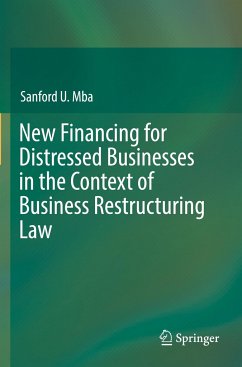Nicht lieferbar

Insolvency and Restructuring Law in Central & Eastern Europe
An Introduction for Practicioners
Herausgegeben: Hoenig, Christian; Hammerl, Christian
Versandkostenfrei!
Nicht lieferbar
Introduction to insolvency laws of CEE countriesThe first contact with foreign insolvency laws is in most cases as unpleasant as sudden. And even if local bankruptcy counsel has been retained, many questions remain unanswered and it is frequently difficult to put the information coming from the foreign insolvency lawyer in proper perspective. This compilation, which has been prepared by lawyers practicing in the area of insolvency law at the Wolf Theiss offices in the countries covered by this book, is an attempt to bridge this information gap. It is intended to serve as a quick reference tool...
Introduction to insolvency laws of CEE countries
The first contact with foreign insolvency laws is in most cases as unpleasant as sudden. And even if local bankruptcy counsel has been retained, many questions remain unanswered and it is frequently difficult to put the information coming from the foreign insolvency lawyer in proper perspective. This compilation, which has been prepared by lawyers practicing in the area of insolvency law at the Wolf Theiss offices in the countries covered by this book, is an attempt to bridge this information gap. It is intended to serve as a quick reference tool for business managers, in-house counsel, lawyers in general practice and other professionals who need to familiarize themselves quickly with some of the most practice-relevant features of the insolvency laws of one or more of the following countries: Albania, Austria, Bosnia/Herzegovina, Bulgaria, Croatia, the Czech Republic, Hungary, Kosovo, Poland, Romania, Serbia, Slovakia, Slovenia and Ukraine. Moreover, this book may be useful to lawyers familiar with insolvency matters in their own jurisdiction, who are looking for a convenient introduction into foreign insolvency laws. The practical focus of this book and its emphasis on restructuring-related topics is underscored by a contribution of Alvarez & Marsal, a global turnaround and forensic advisory firm.
The first contact with foreign insolvency laws is in most cases as unpleasant as sudden. And even if local bankruptcy counsel has been retained, many questions remain unanswered and it is frequently difficult to put the information coming from the foreign insolvency lawyer in proper perspective. This compilation, which has been prepared by lawyers practicing in the area of insolvency law at the Wolf Theiss offices in the countries covered by this book, is an attempt to bridge this information gap. It is intended to serve as a quick reference tool for business managers, in-house counsel, lawyers in general practice and other professionals who need to familiarize themselves quickly with some of the most practice-relevant features of the insolvency laws of one or more of the following countries: Albania, Austria, Bosnia/Herzegovina, Bulgaria, Croatia, the Czech Republic, Hungary, Kosovo, Poland, Romania, Serbia, Slovakia, Slovenia and Ukraine. Moreover, this book may be useful to lawyers familiar with insolvency matters in their own jurisdiction, who are looking for a convenient introduction into foreign insolvency laws. The practical focus of this book and its emphasis on restructuring-related topics is underscored by a contribution of Alvarez & Marsal, a global turnaround and forensic advisory firm.













